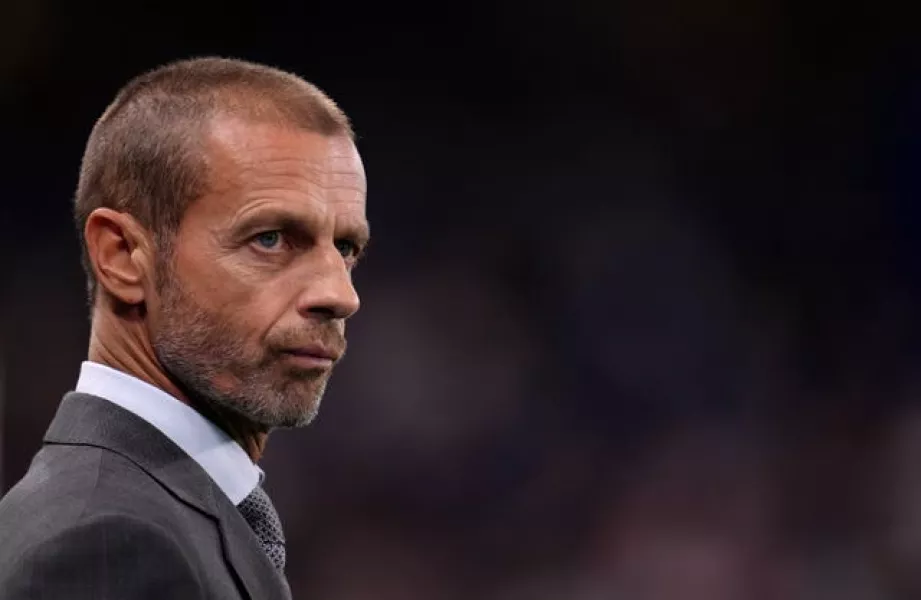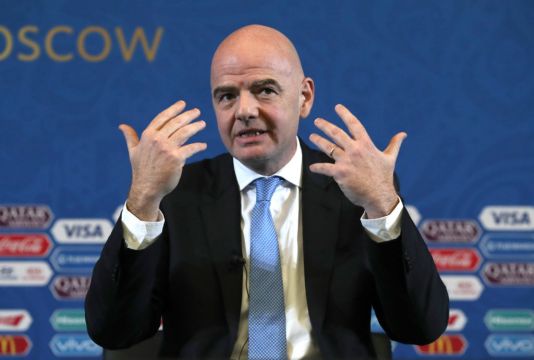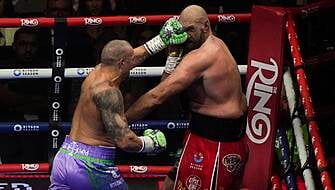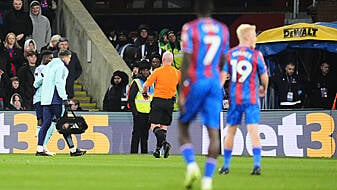FIFA president Gianni Infantino’s comments about African migrants have been described as “completely unacceptable” by Kick It Out chief executive Tony Burnett.
Infantino controversially referenced migrants risking drowning in the Mediterranean during a speech to the Council of Europe on Wednesday, as he spoke about the global benefits of FIFA plans to reform the international calendar which include a proposal for biennial men’s and women’s World Cups.
He said: “We need to give hope to Africans so they don’t need to cross the Mediterranean in order to find, maybe, a better life but more probably death in the sea.
“We need to give opportunities and we need to give dignity, not by giving charity but by allowing the rest of the world to participate.”
Burnett condemned the comments and said in a statement issued to the PA news agency: “FIFA is a multi-billion profit-making organisation. They already have the funds to invest in creating and inspiring opportunity for disadvantaged people around the world.
“It is therefore completely unacceptable to suggest that a biennial World Cup, predominantly set up to drive further profits for FIFA, could be a solution for migrants who risk their lives, sometimes fleeing war-torn countries, to seek a better life.”
He added: “If FIFA has a genuine commitment to tackling inequality, they should be investing time and resource into charitable causes on the ground, rather than disguising what appears to be a profit-making biennial World Cup as the answer to any existing problems.”
FIFA has been approached by PA for a comment regarding Infantino’s remarks.
Despite Infantino’s attempts to outline the benefits to global football, the Council concluded that biennial World Cups would be “disastrous” for the sport in Europe.
FIFA is consulting globally over reforms to the international match calendar, but its plans have been met with vocal opposition in Europe. The continental confederation UEFA, the European Club Association and the European Leagues umbrella body have all rejected the concept.

Now the Council has joined the list of critics, with is resolution stating: “The Assembly questions the advisability of the plan currently under consideration by FIFA to hold the World Cup every two years.
“It considers that such a change would have disastrous consequences for European football, which is why both UEFA and the European Leagues are strongly opposed to the project.
“It could also harm the entire sports ecosystem by making the two main global sporting events – the World Cup and the Olympic Games – compete for media coverage and therefore also financial support.”
It also called on FIFA “not to take decisions that are potentially detrimental to European football and sport worldwide without the agreement of European stakeholders and the International Olympic Committee”.
The Council gave qualified praise to FIFA on its role in promoting labour reform in 2022 World Cup hosts Qatar, but said the situation of migrant workers in the Gulf state “remains worrying and the number of tragic accidents continues to run into the hundreds”.
It added: “Compliance with the International Labour Organisation’s core labour standards should be a prerequisite for being a credible candidate (to host an event) and not a target to reach after being chosen.”
FIFA President highlights commitment to good governance and human rights in landmark address to Council of Europe
👉 https://t.co/xXHt2ONoup pic.twitter.com/DL2nHWabdx— FIFA Media (@fifamedia) January 26, 2022
Its plans to reform the transfer system and the regulation of agents were given Council support, however.
The Assembly acknowledged that moves to regulate agents were “controversial” but said: “The interests at stake call for uniform regulations at the global level to avoid distortions on the international transfer market; for the Assembly, FIFA is entitled to adopt such regulations, provided that the constraints and limitations established therein are reasonable and do not go beyond what is necessary to protect the legitimate interests in question.”
The resolution also stressed the importance of open competition, following the short-lived European Super League project last April. The Council said it “firmly opposes” the Super League project, which will give UEFA encouragement in its ongoing legal battle with the three clubs still openly backing the league.
The trio – Barcelona, Juventus and Real Madrid – have taken their case to the European Court of Justice claiming UEFA is in breach of competition law in blocking the league and in seeking to sanction the participants.
The Council called on UEFA to reconsider how it allocates prize money in its next club competition cycle from 2024 to increase the value of solidarity payments.







